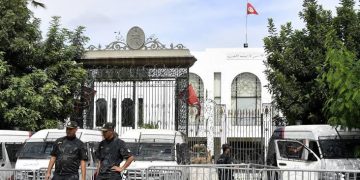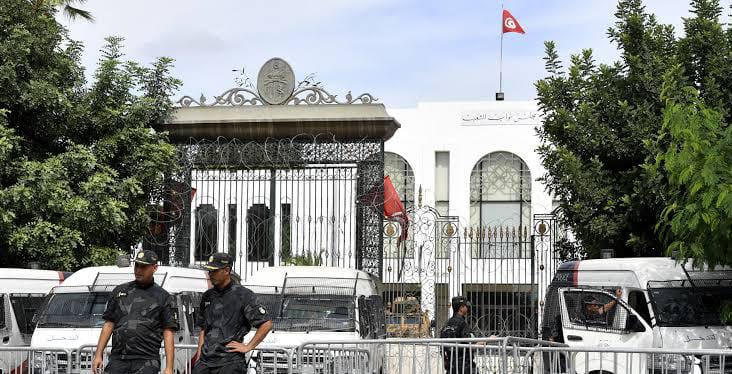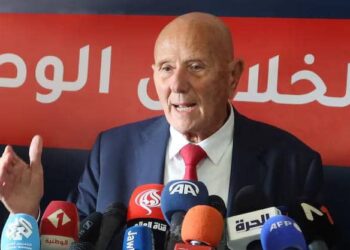By Enyichukwu Enemanna
Tunisia’s new parliament was on Monday inaugurated following the 2021 illegal dissolution of the previous legislature by President Kais Saied when he sealed off the parliamentary building with the army.
The new members of the parliament were nearly handpicked in December and January in shambolic elections boycotted by the president’s opponents and ignored by the masses. Only 11% of registered voters took part in the exercise. The main opposition coalition declared it won’t recognize the new parliament.
During Monday’s inaugural session, the lawmakers elected a new speaker of parliament to succeed the leader of Islamist movement Ennahdha, Rached Ghannouchi, whose party had the largest number of members in the past parliament.
Only journalists from state broadcasters and the official state news agency were allowed inside the parliament to cover the inaugural sitting while dozens of reporters protested outside.
The session comes amid a growing crackdown on opposition Islamists and independent media and other dissenting voices, and on migrants from sub-Saharan Africa.
President Saied had in July 2021 suspended the previous parliament in what he said was an effort to save the country. Saied and many Tunisians at the time blamed the Islamist legislators for the country’s economic and social crises.
Saied has since legislated by decree and moved to unilaterally amass more and more power to his office
That has raised global concerns on possibility of another Arab Spring uprisings which in 2011 started in Tunisia. The country emerged with a new democratic system.
The new legislature has less power than its predecessor, according to a new constitution that Saied pushed through in a referendum.
It is meant to have 161 members, compared to 217 in the previous parliament. But only 154 candidates were elected in the two-round legislative ballot, because no candidates bothered to run in seven electoral districts representing Tunisians abroad, reflecting widespread disillusionment with the political class.
Most political parties boycotted the elections, considering that the electoral process initiated by Saied was designed to establish his control over the country.

































